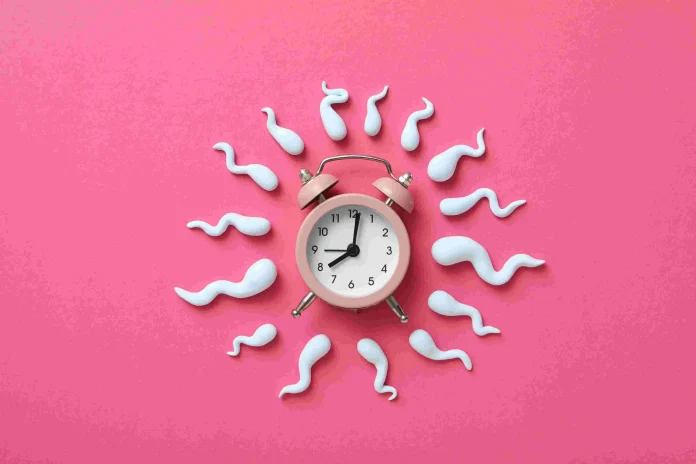Some couples get pregnant on the very first attempt but many more try for several months before they conceive. If you’ve already been trying for a while, it’s natural to start wondering whether or not you have an underlying fertility problem. Before you go to the fertility specialist requesting tests, remember that a few basic diet and lifestyle changes can boost the fertility of both men and women. Men should know that the health of their sperm cells is an extremely important factor in getting a woman pregnant.
What Makes Sperm Healthy?
There are three main elements which determine the health of sperm cells: sperm quantity, sperm quality and sperm motility.
Sperm Quantity – the number sperm cells present in one milliliter of semen. In healthy semen, an analysis would show tens of millions of sperm cells in just one milliliter. In one ejaculation, a man releases millions of sperm cells into his partner’s body, but only 200 of these reach the fallopian tubes, where the egg is waiting for them, and only one of these 200 actually fertilizes the egg.
Sperm Quality – the quality of sperm may be almost as important as the quantity. It’s very important for sperm cells to have a healthy structure and shape. A good-quality sperm cell has an oval head and a long tail which it uses to swim. If a man’s semen contains a lot of sperm cells which have misshapen heads and tails, he is less likely to be able to fertilize his partner’s egg. A semen analysis will check how many sperm cells in a semen sample have a healthy shape and structure.
Sperm Motility – this is basically the sperm cells’ ability to swim forwards. After ejaculation, sperm cells need to be able to swim to the egg in the fallopian tube. The semen analysis will show how many sperm cells in a semen sample have the ability to swim forward and wriggle around.
Diet And Lifestyle
Fertility experts recommend that couples seek fertility treatment only after they have been having unprotected sex for one whole year with no resulting pregnancy. In the meantime, doctors recommend a healthier diet and way of life for both partners. Simple steps a man can take to give his sperm cells a helping hand include:
– Eating well (lots of fruit and vegetables and taking multivitamins. Zinc is a recommended supplement for sperm health, because this mineral is an important building block of the sperm cell).
– Exercising and losing weight (a man should only lose weight if he is overweight). As well as benefitting sperm quality, being fitter also increases the sex drive. When exercising, a man should be careful not to go at it so hard he is completely exhausted. This can cause the temperature of the scrotum and testicles to rise which can affect the quality of the sperm.
– Avoid stress. Stress has been shown to have an adverse effect on fertility, particularly because stress can make us turn to “comfort” mechanisms, such as over-eating, drinking and smoking, which are detrimental to sperm health.
– Quit smoking. Smoking damages sperm, as do drugs and some prescription medications (check with your doctor). If you drink heavily you must cut out or reduce your alcohol consumption.
– Watch your temperature – it’s very important to keep your testicles cool. Invest in good quality underwear and don’t overdo the cycling. Avoid hot tubs, saunas, jacuzzis, etc.
Semen Analysis
If after one year of trying your partner has not become pregnant, ask your doctor to send you for a semen analysis. (Remember, your doctor will also want to check your partner out, it could be that the fertility problem lies with her, or with both of you.) The semen analysis tests for the following factors:
Fructose level – (how much fructose is in the semen sample). Fructose is a sugar in semen which provides sperm with energy.
Liquefaction time – when semen is first ejaculated it comes out as a gel which gradually turns to liquid. The semen analysis measures how long it takes the semen to become liquid (normally 20 minutes).
pH level – this is the acidity or alkalinity of the semen.
Sperm count – as mentioned above, how many sperm cells are in one milliliter of semen (the ideal number for fertility is 20 million).
Sperm Morphology – the percentage of sperm cells in the semen which have a normal shape (one third or more of normally shaped sperm cells is ideal for fertility).
Sperm Motility – percentage of sperm cells in the semen which are able to move forward normally. Roughly 50 % of sperm cells should be moving around to reach the ideal level for fertility.
White blood cell count – white blood cells are not normally found in healthy semen.
See Your Doctor
You don’t have to wait a year to see a doctor if you already suspect that something may be wrong with your reproductive system. Particularly if you are experiencing pain or discomfort, you should make an appointment with your health care provider right away.
